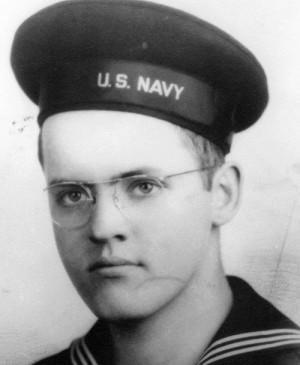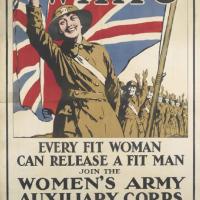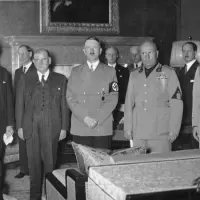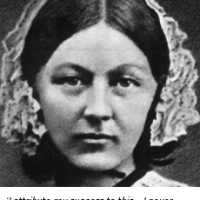When I was researching the material for this post, it made me think of an episode of the Waltons television show from 1978. In the “Conscience”, Jason Walton is struggling with the idea of killing another human being even in time of war (World War II) and his sister Maryellen talks to him about becoming a conscientious objector.
After you read about today in history, I invite you to continue reading as I expanded the scope to write about conscientious objectors.
On July 27, 1943, Joseph Stalin, premier and dictator of the Soviet Union, issues Order No. 227, what came to be known as the “Not one step backward” order, in light of German advances into Russian territory. The order declared, “Panic makers and cowards must be liquidated on the spot. Not one step backward without orders from higher headquarters! Commanders…who abandon a position without an order from higher headquarters are traitors to the Fatherland.”
Early German successes against Russia had emboldened Hitler in his goal of taking Leningrad and Stalingrad. But the German attack on Stalingrad, thought foolhardy by Hitler’s generals, because of Russia’s superior manpower and the enormous drain on German resources and troop strength, was repulsed by a fierce Soviet fighting force, which had been reinforced with greater numbers of men and materials. The Germans then turned their sights on Leningrad. Stalin needed to “motivate” both officers and civilians alike in their defense of Leningrad—hence, Order No. 227. But it was hardly necessary. On the same day the order was given, Russian peasants and partisans in the Leningrad region killed a German official, Adolf Beck, whose job was to send agricultural products from occupied Russia to Germany or German troops. The Russian patriots also set fire to the granaries and barns in which the stash of agricultural products was stored before transport. A partisan pamphlet issued an order of its own: “Russians! Destroy the German landowners. Drive the Germans from the land of the Soviets!”
Conscientious Objector
The subject of Stalin’s Order No. 227 made me think of the men around the world that chose to be conscientious objectors during World War II or at any other time. First I think I should define it. A conscientious objector is an “individual who has claimed the right to refuse to perform military service” on the grounds of freedom of thought, conscience, and/or religion. In general, conscientious objector status is only considered in the context of military conscription and is not applicable to volunteer military forces.
In some countries, conscientious objectors are assigned to an alternative civilian service as a substitute for conscription or military service. Some conscientious objectors consider themselves pacifist, non-interventionist, non-resistant, or anti-militarist.

Desmond Doss, Seventh Day Adventist, was the first of three conscientious objectors who agreed to serve in the US military in non-combatant roles and were subsequently awarded the Medal of Honor, the nation’s highest military decoration
The international definition of conscientious objection officially broadened on March 8, 1995 when the United Nations Commission on Human Rights resolution 1995/83 stated that “persons performing military service should not be excluded from the right to have conscientious objections to military service.” That definition was re-affirmed in 1998, when the United Nations Office of the High Commissioner for Human Rights document called “Conscientious objection to military service, United Nations Commission on Human Rights resolution 1998/77” officially recognized that “persons [already] performing military service may develop conscientious objections.”
Historically, many conscientious objectors have been executed, imprisoned, or otherwise penalized when their beliefs led to actions conflicting with their society’s legal system or government. The legal definition and status of conscientious objection has varied over the years and from nation to nation. Religious beliefs were a starting point in many nations for legally granting conscientious objector status.
In 1575, William the Silent granted the Dutch Mennonites the right to refuse military service in exchange for a monetary payment; this was the first piece of legislation defending the right of conscientious objection. In the United States, the right of conscientious objection has been permitted since the creation of the republic, although its regulation was left to the state governments prior to the introduction of conscription.
Conscientious objection and the performance of civilian service (i.e. civilian tasks as an alternative to compulsory military service) in Germany grew into a veritable institution, especially in the health service. The suspension of conscription in Germany in 2011 is therefore reported to have caused problems for “caring” activities previously undertaken by objectors performing civilian service. Some conscientious objectors served as firefighters and aides in mental institutions in the U.S. during World War II and the Korean War.

Britain’s Home Front 1939 – 1945- Conscientious Objectors
Conscientious objectors attending a course in mechanised agriculture at an agricultural school in Essex, under the Ministry of Agriculture’s labour training scheme. Photo shows: Conscientious objectors studying the construction of a plough out in the field.
Date
One of the primary reason for claiming conscientious objection is for religious reasons and these are varied according to the person’s religion.
One such case is Ben Salmon, a Catholic conscientious objector during World War I. He was an and outspoken critic of Just War theology. The Catholic Church denounced him and the The New York Times described him as a “spy suspect.” The US military (in which he was never inducted) charged him with desertion and spreading propaganda, then sentenced him to death (this was later revised to 25 years hard labor). On June 5, 1917, Salmon wrote in a letter to President Wilson:
Regardless of nationality, all men are brothers. God is “our Father who art in heaven.” The commandment “Thou shalt not kill” is unconditional and inexorable. … The lowly Nazarene taught us the doctrine of non-resistance, and so convinced was he of the soundness of that doctrine that he sealed his belief with death on the cross. When human law conflicts with Divine law, my duty is clear. Conscience, my infallible guide, impels me to tell you that prison, death, or both, are infinitely preferable to joining any branch of the Army.
Another example of a conscientious objector was the Austrian devout Roman Catholic Christian Franz Jägerstätter, who was executed on August 9, 1943 for openly refusing to serve in the Nazi Wehrmacht, consciously accepting the penalty of death. He was declared Blessed by Pope Benedict XVI in 2007 for dying for his beliefs, and is viewed as a symbol of self-sacrificing resistance.
On June 4, 1967, John Courtney Murray, an American Jesuit priest and theologian, delivered an address at Western Maryland College concerning a more specific type of conscientious objection: “the issue of selective conscientious objection, conscientious objection to particular wars, or as it is sometimes called, discretionary armed service.”
On March 8, 1971, the Supreme Court of the United States ruled in the case of Gillette v. United States that “the exemption for those who oppose “participation in war in any form” applies to those who oppose participating in all war and not to those who object to participation in a particular war only.” I can see how this ruling had serious implications to protestors of the Vietnam War.

The Supreme Court (1970-1971), consisting of Hugo L. Black, William O. Douglas, John M. Harlan, William J. Brennan, Jr., Potter Stewart, Byron R. White, Thurgood Marshall, Warren E. Burger, and Harry A. Blackmun. Image from http://www.oyez.com.
One such famous conscientious objector to the Vietnam War was boxer, Mohammed Ali. In 1967, three years after winning the heavyweight title, Ali refused to be conscripted into the U.S. military, citing his religious beliefs and opposition to the Vietnam War. He was eventually arrested and found guilty on draft evasion charges and stripped of his boxing title. He did not fight again for nearly four years—losing a time of peak performance in an athlete’s career. Ali’s appeal worked its way up to the U.S. Supreme Court, where in 1971 his conviction was overturned.
The caption has been edited for this post.
Some conscientious objectors are unwilling to serve the military in any capacity, while others accept noncombatant roles. While conscientious objection is usually the refusal to collaborate with military organizations, as a combatant in war or in any supportive role, some advocate compromising forms of conscientious objection. One compromising form is to accept non-combatant roles during conscription or military service.
Alternatives to military or civilian service include serving an imprisonment or other punishment for refusing conscription,

John T. Neufeld was a Mennonite World War I conscientious objector sentenced to 15 years hard labor in the military prison at Leavenworth. He was paroled to do dairy work and released after serving five months of his sentence. His diary of army and prison life is published in a collection with three other WWI Mennonite conscientious objectors
falsely claiming unfitness for duty by feigning an allergy or a heart condition, delaying conscription until the maximum drafting age, or seeking refuge in a country which does not extradite those wanted for military conscription. Avoiding military service is sometimes labeled draft dodging, particularly if the goal is accomplished through dishonesty or evasive maneuvers. However, many people who support conscription will distinguish between “bona fide” conscientious objection and draft dodging, which they view as evasion of military service without a valid excuse.

Paul O’Brien, a student at the University of Chicago burning his draft card at an anti-war rally, Chicago Illinois, October, 9, 1967
While conscientious objectors used to be seen as deserters, traitors, cowards, slackers or simply un-patriotic, their image has changed drastically in the Western world in past decades. Especially in Europe, where objectors usually serve an alternative civilian service, they are regarded as making an equally important contribution to society as conscripts. Parallel to that, the number of objectors has risen significantly, too e.g., in Germany, where conscientious objection is a constitutional right, from less than one percent of all eligible men to more than fifty percent in 2003.
Conscientious objectors around the world
At this point, this post is getting to be long, so instead of writing about the role and treatment of conscientious objectors in various parts of the world, I will provide a few links to this information.
http://en.wikipedia.org/wiki/Conscientious_objector
http://www.pbs.org/now/shows/334/conscientious-objection.html











 Check out my other blog
Check out my other blog I'M PUBLISHED
I'M PUBLISHED I'm Published Again
I'm Published Again









Great research. One of those multi-faceted topics.
LikeLike
Thanks. It must be a tough road for a person to reconcile their religious beliefs with service to their country.
LikeLike
[…] “Conscientious objector (COs)” status was granted to those who could demonstrate “sincerity of belief in religious teachings combined with a profound moral aversion to war.” Quakers made up most of the COs, but 75 percent of those Quakers who were drafted fought. COs had to perform alternate service in Civilian Public Service Camps, which entailed long hours of hazardous work for no compensation. I wrote about COs in a previous blog posting. […]
LikeLike